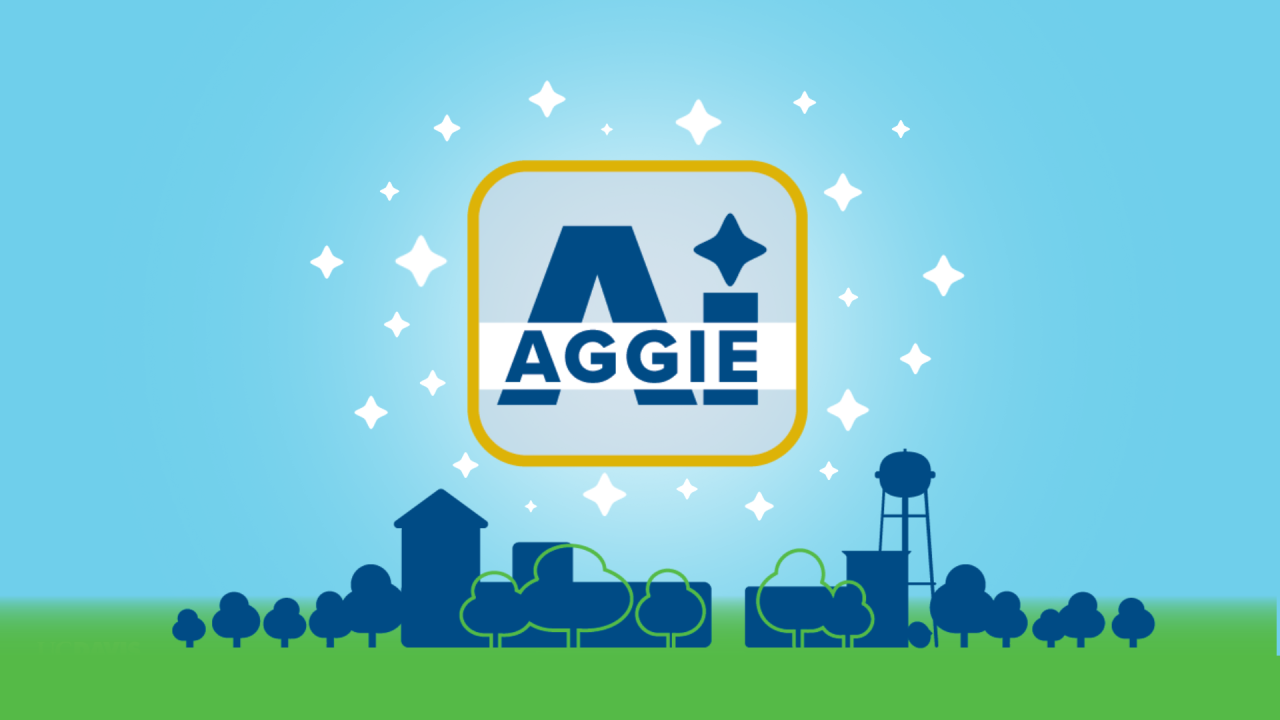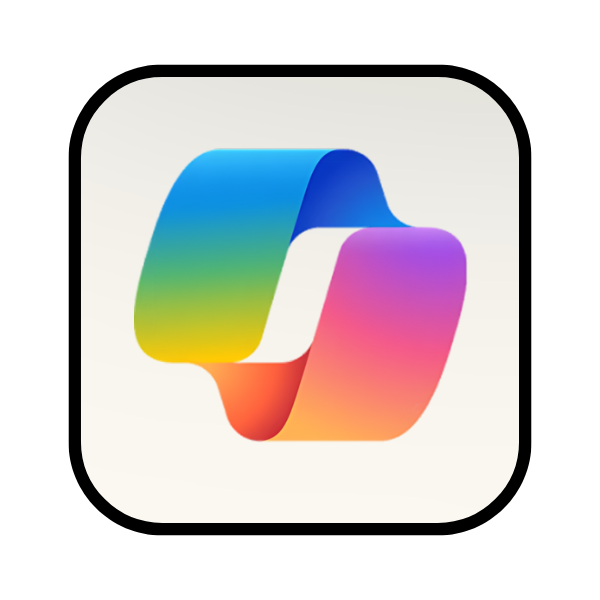
Beyond Productivity: The Power of AI as an Accessibility Tool
Quick Summary
- Artificial intelligence (AI) is proving to be a powerful accessibility tool, with studies suggesting that neurodiverse individuals may benefit significantly more from chatbots and AI-driven applications than their neurotypical peers.
- UC Davis is actively deploying this potential through its Aggie AI ecosystem, offering tools like NotebookLM and Google Gemini.
- These tools convert materials, simplify complex tasks, and provide personalized learning support for students and staff with diverse needs.
Artificial intelligence (AI) is often praised for boosting efficiency, productivity, and innovation—but it also holds another powerful promise: accessibility. A recent study found that neurodiverse individuals may benefit more from chatbots than their neurotypical peers. Individuals with dyslexia or hearing loss also reported higher satisfaction at work and were more likely to recommend AI tools to colleagues.
In higher education, AI-driven accessibility tools may help students, faculty, and staff with diverse learning needs achieve greater success.
“The potential for AI as an accessibility tool is profound,” said Joshua Hori, Accessibility Coordinator. “By tailoring its capabilities to individual needs, AI can act as a personalized assistant, tutor, or even advocate.”
AI Accessibility on Campus
As part of Academic Technology Services, Hori is involved in multiple campus initiatives to advance accessibility. From using NotebookLM to convert cumbersome Braille documents to audio to generating descriptive text for tactile chemistry maps, Hori is constantly looking for innovative ways AI tools can be used to meet accessibility needs.
“The true power of AI lies in its adaptability,” explained Hori. “Unlike traditional accommodations, which are often static or limited to specific needs, AI can evolve alongside its user.”
By pairing the right tool with the right need, Hori says AI can be used to:
- Simplify complex tasks
- Enhance focus and organization
- Overcome communication barriers
- Customize learning experiences
Hori often consults with the UC Davis Student Disability Center, which receives accommodation requests from students and helps them find support and/or services to meet their needs. In their toolbox are several basic AI-powered applications, designed to primarily help with note taking, recording, and transcribing.
“When recommending an AI tool, we are always mindful of experience gaps,” said Sebastian Niles, Accessibility Technology Specialist. “We need to make sure we’re pairing them with the right tool and providing the right guidance, so it’s used as an accessibility enhancement, not a replacement for a learnable skill.”
When recommending an AI-enabled accommodation, the Center will often turn to tools like Otter.ai, Geneo, or Read&Write. These require subscriptions and must be approved and distributed by the SDC on a yearly basis.
Students and employees at UC Davis also have access to free applications through Aggie AI, the growing ecosystem of AI tools managed by Information and Educational Technology (IET) in collaboration with other campus partners.
How to Use Aggie AI Tools to Improve Accessibility
Here’s a look at how some no-cost Aggie AI tools can be used to improve accessibility and the UC Davis experience.

Can be used to convert text-based course materials and notes into different formats, such as audio or video, to fit individual needs. References and cites only uploaded materials. Here are some examples of how to use NotebookLM to meet accessibility needs:
- Audio Overviews: Upload a research paper or lecture notes and generate a podcast-style audio summary. Allows you to listen to the material on the go or follow along as you read, making dense texts more manageable.
- Simplified Explanations: Prompt NotebookLM to "explain this concept as if I have no background in the field" or "summarize the key takeaways in a bulleted list." This simplifies complex information and helps you to grasp core ideas without getting bogged down in jargon.
Learn more about NotebookLM at UC Davis: https://iet.ucdavis.edu/aggie-ai/ai-tools/notebooklm

Can be used to create personalized learning paths, enhance communication skills, and assist with research and organization. Chat-based interface responds to natural language and cites information from the broad internet. Here are some examples of how to use Google Gemini for Education to meet accessibility needs:
- Q&A for Research: Instead of visually scanning a document or website, use Gemini as a research assistant. Ask specific questions like, "What are the three main causes of the American Revolution according to this textbook?" or "Find the section on climate change policy in the provided article." This provides direct access to information in a spoken or text-based format that works with screen readers.
- Creating Study Aids: Paste their lecture notes or a reading assignment into Gemini and ask it to "create a study guide with key terms" or "generate a practice quiz on the main ideas." This transforms a passive learning experience into an active one and helps you create custom study materials that are tailored to your needs.
Learn more about Google Gemini at UC Davis: https://iet.ucdavis.edu/aggie-ai/ai-tools/google-gemini

Can be used to generate accessible content, transform notes into actionable items, and enhance communication and collaboration skills. Like Gemini, Copilot Chat uses natural language and cites information from the broad internet. Here are some examples of how to use Microsoft 365 Copilot Chat to meet accessibility needs:
- Transforming Notes into Actionable Items: You can paste your rough notes from OneNote into Copilot Chat and ask it to "organize these notes into a study guide" or "create a to-do list from this document." This helps you to structure your thoughts and manage your workload more effectively.
- Dictation and Voice Commands: Instead of typing, you can speak your prompts to Copilot Chat, asking it to “draft an email to a colleague” or “create a memo about an upcoming project.” This leverages speech-to-text capabilities to remove the physical barrier of typing.
Learn more about Microsoft 365 Copilot Chat at UC Davis: https://iet.ucdavis.edu/aggie-ai/ai-tools/microsoft-copilot

Can be used to find UC Davis-specific information—events, academics, and athletics—explain or simplify university policies and suggest campus resources. Trained on UC Davis websites and cites sources from the larger internet. Here are some examples of how to use Rocky to meet accessibility needs:
- Digital Accessibility Resources: Find available digital accessibility tools, like screen readers, captioning services for lectures, and accessible library resources. Those with visual impairments can ask Rocky how to access e-books in alternative formats or to provide direct links to relevant campus IT support and library services.
- Accessible Campus Navigation: Generate detailed, step-by-step directions to accessible entrances, elevators, and restrooms across campus buildings. Ask Rocky for the most accessible route to a classroom or campus landmark, including information about ramps, automatic doors, and accessible parking locations.
Learn more about Rocky AI Chat at UC Davis: https://iet.ucdavis.edu/aggie-ai/rocky

Zoom AI Companion
Can be used to generate notes during a virtual meeting or lecture, navigate long recordings with smart chapters, and enhance organization by creating action items from meeting content. Works within the Zoom environment, primarily by analyzing meeting transcripts, and does not cite outside sources. Here are some examples of how to use Zoom AI Companion to meet accessibility needs:
- Focus on Participation: With the knowledge that a summary will be automatically generated, you can shift your focus from notetaking to active listening and participating in a discussion. This can lead to better engagement and comprehension of the material.
- Auditory Processing Support: Generates a visual record of what is being said in chat, which can be a lifeline for those with auditory processing disorders. You read the questions and comments in the chat while simultaneously listening to the speaker, reinforcing your understanding and ensuring you don't miss important details.
Learn more about Zoom AI Companion at UC Davis: https://iet.ucdavis.edu/aggie-ai/ai-tools/zoom-ai-companion
Important Considerations
UC Davis recommends you avoid sharing highly sensitive information with AI tools to ensure privacy and prevent risks. Reference the Aggie AI tools comparison chart to see which Data Protection Level each tool can support.
AI tools are trained on a massive dataset of text and code which may contain biased or inaccurate information. It is important to fact check outputs and use AI as an enhancement to, not a replacement for human expertise.
Students, before using AI tools to complete coursework:
- Check with your instructor. The use of AI tools in coursework is at the discretion of individual faculty members. You must consult your syllabus or ask your professor for guidance on what is and is not permitted.
- Maintain academic integrity. You are always responsible for the work you submit. Always review, edit, and verify the content to ensure it is accurate and reflects your own understanding.
Learn More about Aggie AI
Find the latest AI tools offered at UC Davis, along with learning resources, guidance on ethical and responsible use, and AI-related events, on the Aggie AI webpage: https://iet.ucdavis.edu/aggie-ai
